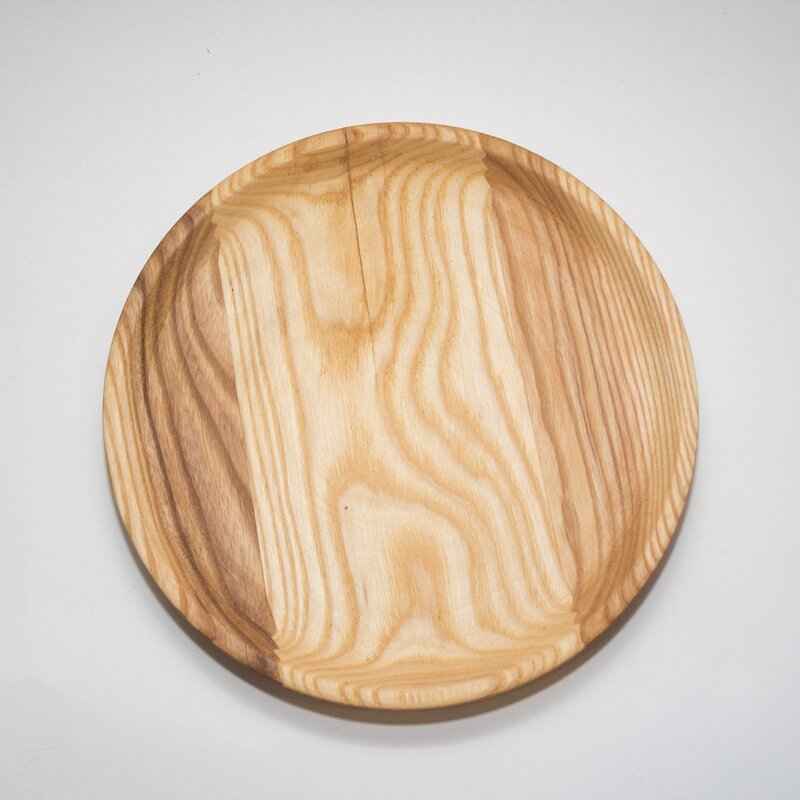This article delves into the versatile ingredient of miso, showcasing how it can enhance a variety of unexpected dishes, from savory to sweet. Miso, a traditional Japanese fermented soybean paste, adds depth and umami to culinary creations. Understanding its flavor profile can inspire creative applications that go beyond traditional uses.
What is Miso and Why Use It?
Miso is not just a seasoning; it is a powerhouse of flavor. Its unique fermented qualities contribute to its complex taste, which can elevate everyday dishes. The different types of miso—white, yellow, and red—offer varying levels of sweetness and saltiness, making it essential to choose the right kind for your culinary needs.
How to Incorporate Miso into Pasta Dishes?
Pasta may seem an unlikely candidate for miso, but it can transform simple recipes into gourmet experiences. By blending miso into sauces and dressings, you can achieve a unique flavor twist.
- Creating Miso-Based Sauces: Miso serves as an excellent base for rich, savory sauces. Combine miso with garlic, olive oil, and cream to create delectable pasta sauces.
- Combining Miso with Creamy Ingredients: Pairing miso with creamy elements like cheese or cream can yield a luscious sauce. Explore how to balance flavors for an elevated pasta dish.
- Adding Miso to Pesto: Incorporating miso into traditional pesto recipes can add a new dimension. Experiment with substituting or complementing ingredients for a twist on this classic sauce.
Using Miso in Unexpected Desserts
Miso isn’t just for savory dishes; it can also enhance desserts. This ingredient can add depth to sweet treats such as ice cream and baked goods.
How to Make Miso Ice Cream?
Miso ice cream is a delightful fusion of sweet and savory. To create this unique dessert, combine miso with cream, sugar, and vanilla, then churn in an ice cream maker.
- Choosing the Right Miso for Desserts: Different types of miso offer varying levels of sweetness and saltiness. Select the best miso to complement your dessert recipes.
- Balancing Flavors in Miso Ice Cream: Achieving the perfect flavor harmony between miso’s umami and sweetness is crucial for an unforgettable dessert experience.
What Other Dishes Can Benefit from Miso?
Miso’s versatility extends beyond pasta and desserts. It can enhance a variety of dishes, including soups, dressings, and marinades.
- Miso in Salad Dressings: Miso can serve as a robust base for salad dressings, adding depth and complexity. Create simple, delicious dressings that elevate your salads.
- Miso Marinades for Proteins: Using miso in marinades imparts rich flavors to meats and vegetables. Explore effective marinade recipes that leverage miso’s umami to enhance grilled dishes.
How to Store and Handle Miso?
Proper storage and handling of miso are essential for maintaining its flavor and quality. Store miso in an airtight container to prevent spoilage, and understand the ideal conditions for keeping it fresh.
- Best Storage Practices for Miso: Ensure your miso is kept in a cool, dark place to maintain its flavor and potency.
- How Long Does Miso Last? Miso can last for months or even years if stored properly. Learn to recognize when miso is still good to use and how to extend its longevity.
In summary, miso is a remarkably versatile ingredient that can enhance a wide range of dishes, from pasta to desserts. By understanding its flavor profile and exploring innovative uses, you can elevate your culinary creations to new heights.

What is Miso and Why Use It?
Miso is a traditional Japanese fermented soybean paste that has been a staple in Japanese cuisine for centuries. Its unique flavor profile, characterized by a rich, savory umami taste, adds depth to a variety of dishes. The fermentation process not only enhances its flavor but also boosts its nutritional value, making it a powerhouse of protein, vitamins, and minerals.
Understanding the diverse applications of miso can inspire creative culinary endeavors that go beyond its conventional uses. Its versatility allows it to be incorporated into both savory and sweet dishes, making it an exciting ingredient for chefs and home cooks alike.
Miso is made from soybeans, salt, and a fermenting agent known as koji, which is typically derived from rice, barley, or soybeans themselves. The fermentation period can vary, leading to different types of miso, such as:
- White Miso (Shiro Miso): Mild and slightly sweet, ideal for dressings and marinades.
- Red Miso (Aka Miso): Rich and robust, perfect for hearty soups and stews.
- Mixed Miso (Awase Miso): A blend of white and red, offering a balanced flavor.
Incorporating miso into your cooking can elevate everyday meals. Here are some practical tips:
- Soups and Broths: Miso is famously used in miso soup, but it can also enhance vegetable broths and ramen.
- Marinades: Mix miso with ingredients like ginger, garlic, and soy sauce to create flavorful marinades for meats and tofu.
- Salad Dressings: Whisk miso into vinaigrettes for a creamy, umami-rich dressing.
While it may seem unconventional, miso can be a surprising addition to baked goods. Its savory notes can complement the sweetness of desserts. For instance, adding a small amount of miso to cookie dough can create a complex flavor profile that surprises the palate.
Miso is not just a flavor enhancer; it also offers several health benefits:
- Probiotics: The fermentation process creates beneficial bacteria that support gut health.
- Rich in Nutrients: Miso is a good source of protein, vitamins, and minerals, including vitamin K and manganese.
- Low in Calories: With its strong flavor, a little miso goes a long way, making it a low-calorie option for flavoring dishes.
To maintain its flavor and quality, proper storage of miso is essential. Here are some tips:
- Keep it Refrigerated: Miso should be stored in an airtight container in the refrigerator to prevent spoilage.
- Check Expiration Dates: While miso can last for months, always check for any signs of spoilage.
In conclusion, miso is a versatile ingredient that can transform a wide range of dishes. From enhancing savory meals to adding depth to desserts, its unique flavor and health benefits make it a valuable addition to any kitchen. By understanding how to use miso creatively, you can elevate your culinary creations and explore new taste experiences.

How to Incorporate Miso into Pasta Dishes?
Pasta is a beloved staple in many kitchens, but have you ever considered adding miso to your pasta dishes? This traditional Japanese ingredient, made from fermented soybeans, is packed with umami flavor and can elevate your pasta recipes in unexpected ways. Let’s explore how to effectively incorporate miso into your favorite pasta dishes.
Miso is not just for soups and marinades; its rich, savory profile can enhance the flavor of pasta dishes significantly. By adding miso, you introduce a depth of flavor that can transform a simple meal into something extraordinary. The key is to balance the salty, savory notes of miso with the other ingredients in your dish.
One of the easiest ways to incorporate miso into pasta is by creating a miso-based sauce. Here are some ideas:
- Garlic Miso Sauce: Combine miso with minced garlic, olive oil, and a splash of lemon juice. This sauce can be tossed with spaghetti for a quick and flavorful meal.
- Creamy Miso Alfredo: Mix miso into a traditional Alfredo sauce made with cream and Parmesan cheese. This will add an unexpected umami kick to the classic dish.
When pairing miso with creamy elements, such as cheese or cream, it’s essential to find the right balance. For instance, you can create a miso mac and cheese by stirring miso into your cheese sauce, resulting in a rich and savory comfort food that’s sure to impress.
Pesto is another dish that can benefit from the addition of miso. By substituting part of the cheese or nuts in your pesto recipe with miso, you can create a unique flavor profile. Consider mixing miso with basil, garlic, and olive oil for a delicious twist on this classic sauce.
Vegetable-based pasta dishes can also be elevated with miso. For example, sautéing seasonal vegetables in a miso glaze can add depth to a simple pasta primavera. Just mix miso with a bit of water to create a glaze, then toss it with your vegetables before adding them to your pasta.
Miso can also shine in cold pasta salads. Create a dressing by whisking together miso, rice vinegar, and sesame oil to drizzle over your pasta salad. This not only adds flavor but also provides a unique twist that will delight your guests.
Don’t limit your miso experiments to just one type of pasta. Miso can complement various pasta shapes, from spaghetti to fusilli. Each shape can hold different sauces, allowing for a range of textures and flavors.
When incorporating miso into your pasta dishes, remember to start with a small amount and adjust to taste. Miso can be quite potent, so it’s best to add it gradually. Additionally, consider the type of miso you are using—white miso is milder and sweeter, while red miso is stronger and saltier.
In conclusion, miso is a versatile ingredient that can bring a unique flavor twist to your pasta dishes. Whether you’re making sauces, enhancing vegetable dishes, or creating salads, miso can elevate your meals in delightful ways. So the next time you cook pasta, don’t hesitate to reach for that jar of miso!
Creating Miso-Based Sauces
Miso, a staple in Japanese cuisine, is not just for soups and marinades. Its rich, savory flavor makes it an excellent base for a variety of sauces, particularly for pasta dishes. In this section, we will explore how to create delectable miso-based sauces that can elevate your pasta meals to new heights.
Miso is a fermented soybean paste that offers a unique blend of umami, saltiness, and depth. This complex flavor profile allows it to pair beautifully with a variety of ingredients, making it an ideal base for sauces. When combined with other elements, miso can create a harmonious balance that enhances the overall taste of your dishes.
To create a rich miso sauce, you can start by blending miso with ingredients such as:
- Garlic: Adds a pungent kick.
- Olive Oil: Provides a smooth texture and richness.
- Cream: Introduces a luxurious creaminess.
- Vegetable Broth: Helps to thin the sauce while adding more flavor.
Combining these ingredients with miso can result in a sauce that is not only savory but also incredibly satisfying.
Here’s how to create a simple yet delicious miso-based pasta sauce:
1. Start by sautéing minced garlic in olive oil over medium heat until fragrant.2. In a bowl, mix together miso paste and a splash of vegetable broth to create a smooth mixture.3. Add the miso mixture to the sautéed garlic, stirring to combine.4. Gradually add cream or a non-dairy alternative, mixing until the sauce reaches your desired consistency.5. Toss the sauce with cooked pasta and garnish with fresh herbs or grated cheese.
Don’t hesitate to experiment with different types of miso, such as white or red miso, to find the flavor that best suits your palate. You can also add ingredients like:
- Chili flakes: For a spicy kick.
- Sesame oil: To introduce a nutty flavor.
- Vegetables: Such as spinach or mushrooms for added texture.
The beauty of using miso in pasta sauces lies in its ability to enhance flavors without overwhelming them. It provides a depth that complements the pasta, allowing for a satisfying meal that feels both comforting and innovative. Additionally, miso is a versatile ingredient that can easily be adapted to suit various dietary preferences, making it an excellent choice for any kitchen.
Incorporating miso into your pasta sauces opens up a world of culinary possibilities. With its rich umami flavor, miso can transform ordinary dishes into extraordinary meals. Whether you’re preparing a quick weeknight dinner or hosting a special occasion, miso-based sauces will impress your guests and delight your taste buds.
Combining Miso with Creamy Ingredients
When it comes to enhancing flavors in culinary creations, miso stands out as a versatile ingredient that can elevate even the simplest of dishes. One of the most exciting applications of miso is its pairing with creamy elements like cheese, cream, or even yogurt. This combination not only creates a luscious sauce but also introduces a delightful balance of flavors and textures that can transform your pasta dishes and beyond.
Why Pair Miso with Creamy Ingredients?
- Umami Boost: Miso is rich in umami, which enhances the overall taste of creamy sauces, making them more complex and satisfying.
- Texture Contrast: The creaminess of cheese or cream complements the thick, paste-like consistency of miso, resulting in a delightful mouthfeel.
- Flavor Depth: Combining these ingredients can create a multi-layered flavor profile that intrigues the palate.
Creating Miso Cream Sauce
To craft a miso cream sauce, start by sautéing garlic in olive oil until fragrant. Then, whisk in your choice of cream and a spoonful of miso. This simple mixture can be adjusted with additional ingredients like parmesan cheese or herbs to complement your pasta. The result is a creamy sauce that offers a rich umami flavor, perfect for tossing with fettuccine or penne.
Incorporating Miso into Cheese Dishes
Miso can also be integrated into cheese-based recipes. For example, consider making a miso cheese dip by blending cream cheese, miso, and a touch of sour cream. This dip pairs wonderfully with crackers or fresh vegetables, offering a unique twist on traditional cheese spreads. The salty notes of miso enhance the creaminess of the cheese, creating a balanced and flavorful dip.
Exploring Flavor Combinations
When pairing miso with creamy ingredients, it’s essential to explore various flavor combinations. For instance, adding a hint of lemon juice or zest can brighten the dish, while a sprinkle of chili flakes can introduce a spicy kick. Experimenting with different types of miso—such as white, yellow, or red—can also yield different taste profiles, allowing for a personalized touch to your dishes.
Enhancing Pasta Dishes with Miso Cream
Incorporating miso into pasta dishes can elevate them from ordinary to extraordinary. For a quick meal, try tossing cooked pasta with a miso cream sauce, sautéed vegetables, and a protein of your choice, such as grilled chicken or sautéed mushrooms. This method not only saves time but also ensures a flavorful and satisfying meal.
Final Thoughts on Miso and Creamy Ingredients
The pairing of miso with creamy elements is a culinary adventure waiting to be explored. By understanding the balance of flavors and textures, you can create dishes that are not only delicious but also memorable. Whether you are preparing a comforting pasta dish or an innovative cheese dip, miso’s unique umami profile will undoubtedly enhance your culinary creations.
Adding Miso to Pesto
Adding miso to pesto is an innovative way to enhance this classic sauce, providing a rich umami flavor that can elevate your culinary creations. By substituting or complementing traditional ingredients, you can create a unique twist on the beloved Italian condiment.
Miso, a fermented soybean paste, is known for its complex flavor profile that includes savory, salty, and slightly sweet notes. Incorporating miso into pesto not only enhances the flavor but also introduces a depth that traditional recipes may lack. This ingredient is particularly beneficial for those looking to reduce cheese while still achieving a creamy texture and rich taste.
When adapting your pesto recipe, consider the following substitutions:
- Cheese Replacement: Use miso to replace some or all of the cheese in your pesto. Start with a tablespoon of white miso for a milder flavor or red miso for a bolder taste.
- Nut Variations: While traditional pesto often includes pine nuts, try using walnuts or cashews for a different texture and flavor that complements miso.
- Garlic Infusion: You can still add garlic, but consider roasting it first. The sweetness of roasted garlic pairs beautifully with the umami of miso.
To further enhance your miso pesto, consider adding:
- Lemon Juice: A splash of acidity will brighten the flavors and balance the richness of the miso.
- Fresh Herbs: While basil is classic, experimenting with cilantro or arugula can create a refreshing new flavor profile.
- Chili Flakes: For those who enjoy a bit of heat, adding chili flakes can provide a delightful kick.
Here are some practical tips to ensure your miso pesto turns out perfectly:
1. Start Small: Begin with a small amount of miso, then gradually adjust to taste.2. Blend Well: Use a food processor to thoroughly blend the ingredients for a smooth consistency.3. Taste as You Go: Adjust the flavors as needed; you may want to add more lemon juice or nuts to balance the miso's saltiness.
Once you have your miso pesto ready, the possibilities are endless. Use it as a sauce for pasta, a spread for sandwiches, or a dip for fresh vegetables. It can also be drizzled over grilled meats or used as a marinade for fish, adding a unique flavor to your dishes.
To preserve the freshness of your miso pesto, store it in an airtight container in the refrigerator. It can last for up to a week. For longer storage, consider freezing it in ice cube trays, allowing you to use small portions as needed.
Incorporating miso into pesto not only transforms the sauce but also opens the door to a variety of culinary adventures. By experimenting with flavors and ingredients, you can create a unique pesto that is both delicious and versatile.
Using Miso in Unexpected Desserts
Miso, a traditional Japanese fermented soybean paste, is typically associated with savory dishes, but its unique flavor profile can also enhance desserts in delightful ways. By incorporating miso into sweet treats, you can achieve a surprising depth of flavor that tantalizes the taste buds. This article explores various dessert applications for miso, including ice cream and baked goods, and provides practical tips for creating delicious miso-infused desserts.
The umami-rich flavor of miso can add complexity to desserts, transforming ordinary recipes into extraordinary culinary experiences. The key lies in balancing miso’s salty, savory notes with sweetness. Here are some exciting ways to use miso in desserts:
- Miso Ice Cream: A creamy, rich ice cream that combines the sweetness of sugar with the savory depth of miso.
- Miso Caramel Sauce: A unique twist on traditional caramel, miso adds a savory depth that enhances the sweetness.
- Miso Brownies: Incorporating miso into brownie batter can intensify the chocolate flavor and create a moist texture.
Creating miso ice cream is easier than you might think. Here’s a simple recipe to get you started:
Ingredients:- 2 cups heavy cream- 1 cup whole milk- 3/4 cup sugar- 1/4 cup white miso- 1 teaspoon vanilla extractInstructions:1. In a saucepan, combine the cream, milk, and sugar. Heat until the sugar dissolves.2. In a bowl, whisk together the miso and a small amount of the warm cream mixture until smooth.3. Gradually add the miso mixture back into the saucepan, stirring well.4. Remove from heat, add vanilla extract, and cool the mixture.5. Pour into an ice cream maker and churn according to the manufacturer's instructions.6. Freeze until firm, then enjoy your unique miso ice cream!
Not all miso is created equal. The type of miso you choose can significantly impact the flavor of your dessert. Here are some common varieties:
- White Miso: Mild and sweet, making it ideal for desserts.
- Yellow Miso: Slightly stronger in flavor, suitable for a variety of sweet applications.
- Red Miso: Rich and robust, best used sparingly in desserts to avoid overpowering sweetness.
When using miso in desserts, achieving the right balance between sweet and savory is crucial. Here are some tips:
- Start Small: Begin with a small amount of miso and adjust according to taste.
- Complement with Sweetness: Pair miso with sweet ingredients like chocolate, caramel, or fruit to enhance its flavor.
- Experiment: Don’t be afraid to try different types of miso in various desserts to find your perfect combination.
Incorporating miso into desserts not only adds a unique flavor but also introduces a depth that can elevate your culinary creations. Whether you’re making miso ice cream or experimenting with miso brownies, this ingredient can open up a world of possibilities in sweet dishes. Embrace the unexpected and enjoy the delicious results!

How to Make Miso Ice Cream?
Miso ice cream is an intriguing dessert that combines the sweetness of traditional ice cream with the savory umami flavor of miso. This unexpected fusion not only surprises the palate but also offers a unique culinary experience that is both refreshing and satisfying. If you’re curious about how to create this delightful treat, follow the steps below to craft your very own miso ice cream.
- 1 cup heavy cream
- 1 cup whole milk
- 3/4 cup sugar
- 1/4 cup miso paste (white or yellow for a sweeter flavor)
- 1 teaspoon vanilla extract
- Pinch of salt
Creating miso ice cream involves a few simple steps that ensure a smooth and creamy texture while highlighting the unique flavor of miso.
- Combine Ingredients: In a mixing bowl, whisk together the heavy cream, whole milk, sugar, and miso paste. Ensure the miso is fully dissolved to prevent any lumps in your ice cream.
- Add Flavor: Incorporate the vanilla extract and a pinch of salt into the mixture. This will enhance the overall flavor and balance the sweetness with the savory notes of miso.
- Chill the Mixture: Cover the bowl with plastic wrap and refrigerate for at least 2 hours. Chilling the mixture allows the flavors to meld and develop, resulting in a more harmonious taste.
- Churn the Ice Cream: Once chilled, pour the mixture into an ice cream maker and churn according to the manufacturer’s instructions. This process incorporates air, giving the ice cream a light and creamy texture.
- Freeze: Transfer the churned ice cream to an airtight container and freeze for at least 4 hours to firm up before serving.
To achieve the best results when making miso ice cream, consider the following tips:
- Select the Right Miso: Choose a miso that complements the sweetness of your ice cream. White miso is milder and sweeter, while yellow miso has a more pronounced flavor.
- Experiment with Flavors: Feel free to get creative by adding mix-ins such as chocolate chips, nuts, or fruit for added texture and taste.
- Adjust Sweetness: Depending on your preference, you can adjust the amount of sugar in the recipe. Taste the mixture before churning to ensure it meets your sweetness level.
Once your miso ice cream is ready, serve it in a chilled bowl or cone. For an elegant touch, consider garnishing with a drizzle of caramel sauce or a sprinkle of sea salt. Pairing it with savory snacks or fruits can create a delightful contrast that enhances the overall experience.
Miso ice cream is not just a dessert; it’s an adventurous culinary creation that challenges the norms of traditional ice cream flavors. By following these steps and tips, you can impress your family and friends with this unique and delicious treat.
Choosing the Right Miso for Desserts
Miso, a staple in Japanese cuisine, is often associated with savory dishes, but its unique flavor profile can also enhance desserts in unexpected ways. When it comes to using miso in sweet recipes, understanding the different types of miso available is crucial for achieving the desired balance of flavors. This article will explore how to choose the right miso for your dessert creations, ensuring a delightful culinary experience.
Miso comes in various types, each with its own distinct taste, color, and aroma. The most common varieties include:
- White Miso (Shiro Miso): This type is fermented for a shorter period, resulting in a milder, sweeter flavor. It is ideal for desserts as it adds a hint of umami without overpowering sweetness.
- Yellow Miso (Shinshu Miso): A versatile option, yellow miso has a balanced flavor profile that works well in both savory and sweet applications, making it suitable for a range of dessert recipes.
- Red Miso (Aka Miso): With a stronger, saltier flavor due to longer fermentation, red miso can be used sparingly in desserts to provide depth and complexity.
When selecting miso for desserts, consider the following factors:
- Flavor Balance: The sweetness of your dessert should guide your choice of miso. For instance, if you are making a caramel sauce, white miso can enhance the sweetness while adding a savory note.
- Saltiness Level: Different misos have varying salt content. If your dessert is already sweet, opt for a milder miso to avoid overwhelming the dish.
- Aroma: The aroma of miso can impact the overall scent of your dessert. Choose a miso with a pleasant smell that complements the other ingredients.
Once you’ve chosen the right miso, consider how to incorporate it into your dessert recipes:
- Miso Ice Cream: Combine white miso with cream, sugar, and a touch of vanilla to create a rich ice cream that surprises with its umami depth.
- Brownies: Adding a tablespoon of yellow miso to your brownie batter can enhance the chocolate flavor, creating a moist and flavorful treat.
- Cookies: Incorporate miso into cookie dough for a unique twist. It pairs wonderfully with chocolate chips or nuts, adding complexity to the flavor.
To ensure your desserts shine with the addition of miso, keep these tips in mind:
- Start Small: Begin with a small amount of miso, as its flavor can be potent. Gradually increase the quantity to find the right balance.
- Taste as You Go: Always taste your mixture as you incorporate miso to adjust sweetness and saltiness accordingly.
- Pair with Complementary Flavors: Miso pairs well with ingredients like chocolate, caramel, and nuts. Use these combinations to enhance your dessert’s overall flavor.
By understanding the different types of miso and how to select the right one for your desserts, you can elevate your sweet creations to new heights. Embrace the versatility of miso and experiment with its unique flavor profile to surprise and delight your taste buds.
Balancing Flavors in Miso Ice Cream
Creating a unique dessert experience can be a delightful challenge, and miso ice cream is a perfect example of this culinary adventure. The key to mastering this unexpected treat lies in balancing the umami flavor of miso with the sweetness typical of ice cream. Here, we delve into the intricacies of achieving that perfect flavor harmony.
Miso is a fermented soybean paste that ranges in flavor from sweet to salty, depending on the type used. For ice cream, a milder, sweeter miso, such as white miso, is often recommended. This type enhances the sweetness without overwhelming the palate, making it an ideal choice for dessert applications.
To achieve a balanced flavor, it’s essential to select the right sweeteners. Traditional ice cream recipes typically use granulated sugar, but alternatives like honey or maple syrup can complement miso beautifully. When using these alternatives, consider their flavor profiles and sweetness levels to ensure they harmonize with the miso.
- Base Ingredients: Start with a base of cream, milk, and sugar. The creaminess of these ingredients will help to mellow the miso’s savory notes.
- Incorporate Miso: Gradually mix in the miso, tasting as you go. This step is crucial to find the right balance between the miso and sweetness.
- Chill and Churn: Once mixed, chill the mixture thoroughly before churning it in an ice cream maker for a creamy texture.
To elevate your miso ice cream, consider adding flavor enhancers like vanilla extract or toasted sesame seeds. These ingredients can add complexity and depth, further enhancing the overall experience. Additionally, incorporating a pinch of sea salt can amplify the flavors, bringing out the sweetness and umami in perfect harmony.
When it comes to serving, presentation can make a significant impact. Consider garnishing your miso ice cream with caramel sauce or crushed nuts to add texture and visual appeal. Pairing it with a rich chocolate sauce can also create a delightful contrast, appealing to both sweet and savory lovers.
Miso ice cream is not just a dessert; it’s an experience that challenges the norms of traditional ice cream flavors. The umami notes combined with sweetness create a complex flavor profile that is both surprising and satisfying. Whether you are a culinary enthusiast or simply looking to impress guests, this unique dessert is sure to leave a lasting impression.
In conclusion, creating miso ice cream is a wonderful way to explore the versatility of miso beyond savory dishes. By understanding the flavor balance and experimenting with different ingredients, you can craft an unforgettable dessert that surprises and delights.

What Other Dishes Can Benefit from Miso?
Miso is a versatile ingredient that can enhance a wide range of dishes beyond its traditional uses. This fermented soybean paste is not only rich in umami flavor but also adds depth to various culinary creations. Below, we explore some unexpected ways to incorporate miso into your meals, including soups, dressings, and marinades.
Miso can transform ordinary soups into something extraordinary. By adding a spoonful of miso to your broth, you can create a complex flavor profile that enhances the overall taste. Whether you are making a simple vegetable soup or a hearty miso ramen, this ingredient can provide a rich, savory base.
- Classic Miso Soup: Combine miso with dashi broth, tofu, and seaweed for a traditional Japanese experience.
- Vegetable Miso Soup: Add seasonal vegetables like carrots, spinach, and mushrooms to create a nourishing dish.
- Miso Ramen: Use miso as a base for ramen broth, adding noodles, protein, and toppings for a complete meal.
Miso can serve as a robust base for salad dressings, adding depth and complexity to your greens. By mixing miso with ingredients like vinegar, oil, and sweeteners, you can create a delicious dressing that enhances any salad.
- Simple Miso Vinaigrette: Blend miso with rice vinegar and sesame oil for a quick and flavorful dressing.
- Creamy Miso Dressing: Combine miso with yogurt or tahini for a creamy texture that pairs well with hearty salads.
Using miso in marinades can impart rich flavors to meats, fish, and vegetables. The umami properties of miso help to tenderize proteins while infusing them with flavor.
- Miso Marinade for Chicken: Mix miso with garlic, ginger, and soy sauce for a savory marinade that works wonders on grilled chicken.
- Vegetable Miso Marinade: Combine miso with olive oil and herbs to marinate vegetables before roasting or grilling.
Absolutely! Miso can be a fantastic addition to dips and spreads, adding a unique twist to your appetizers. Consider incorporating miso into:
- Hummus: Blend miso with chickpeas, tahini, and lemon juice for a flavorful twist on classic hummus.
- Bean Dips: Use miso in black bean or white bean dips for an added depth of flavor.
Miso can also be used in unexpected ways to enhance various dishes. Here are a few creative ideas:
- Miso Butter: Mix softened butter with miso for a savory spread that pairs well with bread or vegetables.
- Miso Glaze: Create a glaze for grilled fish or vegetables by combining miso with honey and soy sauce.
In conclusion, miso’s versatility extends far beyond traditional dishes. By incorporating this flavorful ingredient into soups, dressings, marinades, and more, you can elevate your culinary creations and surprise your taste buds. Embrace the unique flavors of miso and experiment with it in your kitchen!
Miso in Salad Dressings
Miso is a remarkable ingredient that can elevate your culinary creations, particularly in salad dressings. Its unique umami flavor adds depth and complexity, transforming ordinary salads into extraordinary dishes. In this section, we will explore how to effectively incorporate miso into your salad dressings, providing you with simple and delicious recipes that will enhance your salads.
Using miso in salad dressings not only enhances flavor but also contributes nutritional benefits. Miso is rich in probiotics, which can aid digestion and boost gut health. Additionally, its savory profile can replace the need for excessive salt or artificial flavorings, making your dressings healthier.
Creating a miso-based salad dressing is straightforward and requires just a few basic ingredients. Here are some simple recipes to get you started:
- Miso Vinaigrette: Combine 2 tablespoons of white miso, 3 tablespoons of rice vinegar, 1 tablespoon of sesame oil, and 1 tablespoon of honey. Whisk until smooth and serve over your favorite greens.
- Creamy Miso Dressing: Blend 3 tablespoons of red miso, 1/2 cup of Greek yogurt, 1 tablespoon of lemon juice, and a splash of water to achieve your desired consistency. This dressing pairs well with hearty salads.
- Spicy Miso Dressing: Mix 2 tablespoons of miso, 1 tablespoon of sriracha, 2 tablespoons of soy sauce, and 1 tablespoon of rice vinegar. This dressing adds a kick to any salad.
When working with miso in salad dressings, it’s essential to balance its strong flavor with other ingredients. Here are some tips:
- Sweetness: Adding a sweet element, like honey or maple syrup, can counterbalance the saltiness of miso.
- Acidity: Incorporating acidic components, such as vinegar or citrus juice, can brighten the dressing and enhance the overall flavor.
- Texture: Consider adding creamy elements like tahini or yogurt for a richer dressing that clings to your salad ingredients.
Miso comes in various types, including white, yellow, and red, each offering distinct flavors. White miso is milder and sweeter, making it ideal for lighter dressings. Red miso, on the other hand, has a stronger flavor that pairs well with robust salads. Experimenting with different types of miso can lead to exciting new flavor profiles.
Whether you’re preparing a classic green salad, a grain-based salad, or a hearty vegetable medley, miso dressing can enhance the dish:
- Green Salads: A light miso vinaigrette can elevate mixed greens, cucumbers, and radishes.
- Grain Salads: Miso pairs wonderfully with quinoa or farro, adding depth to salads loaded with roasted vegetables.
- Asian-Inspired Salads: Combine miso with sesame oil and soy sauce for an authentic flavor that complements ingredients like cabbage and edamame.
Incorporating miso into your salad dressings can transform your meals, making them more flavorful and nutritious. With a little creativity and experimentation, you can create dressings that not only enhance your salads but also delight your taste buds.
Miso Marinades for Proteins
Miso marinades are a game-changer in the culinary world, transforming the ordinary into the extraordinary. With its rich umami flavor, miso not only enhances the taste of meats and vegetables but also adds a depth of character that is often missing in traditional marinades. This article delves into effective miso marinade recipes, exploring how to utilize this versatile ingredient to elevate your grilled dishes.
Miso is a fermented soybean paste that is packed with flavor and nutrients. It contains a variety of amino acids, which contribute to its savory profile. By incorporating miso into marinades, you can achieve a complex flavor that penetrates deeply into proteins and vegetables, making every bite deliciously satisfying.
Creating a basic miso marinade is simple and requires just a few key ingredients:
- 3 tablespoons of miso paste (white or red, depending on your flavor preference)
- 2 tablespoons of soy sauce
- 1 tablespoon of rice vinegar
- 1 tablespoon of sesame oil
- 1 teaspoon of honey or maple syrup (for sweetness)
- 1 clove of garlic, minced
Mix these ingredients in a bowl until well combined. This marinade can be used for various proteins, including chicken, pork, and tofu, as well as for vegetables like eggplant and zucchini.
Experimenting with different proteins allows you to discover the full potential of miso marinades:
To create a delicious miso marinade for chicken, combine:
- 2 tablespoons of white miso
- 1 tablespoon of honey
- 1 tablespoon of rice vinegar
- 1 tablespoon of soy sauce
- 1 teaspoon of grated ginger
Marinate the chicken for at least 1 hour, or overnight for best results. This will ensure the flavors fully penetrate the meat, resulting in juicy, flavorful chicken.
For a vegetarian option, try this miso marinade for tofu:
- 3 tablespoons of red miso
- 2 tablespoons of sesame oil
- 1 tablespoon of soy sauce
- 1 tablespoon of rice vinegar
- 1 teaspoon of chili paste (for a spicy kick)
Press and cube the tofu, then marinate for at least 30 minutes before grilling or baking. The miso will enhance the tofu’s flavor, making it a delightful main dish.
To achieve the best results when grilling miso-marinated proteins, consider the following tips:
- Don’t skimp on marinating time: Allowing proteins to marinate for longer enhances flavor absorption.
- Preheat your grill: A hot grill sears the exterior, locking in moisture and flavor.
- Monitor cooking time: Miso can burn easily due to its sugar content, so keep an eye on your dish to prevent charring.
Incorporating miso into your marinades opens up a world of flavor possibilities. Whether you’re grilling chicken, tofu, or vegetables, miso’s unique umami profile will enhance your dishes, making them unforgettable. So, why not elevate your next meal with the rich, savory notes of miso?

How to Store and Handle Miso?
Proper storage and handling of miso are essential for maintaining its flavor and quality. This fermented soybean paste, a staple in Japanese cuisine, can elevate a variety of dishes, but only if it’s stored correctly. Here, we will explore the best practices to ensure your miso remains fresh and ready for use in your culinary creations.
Why is Proper Storage Important?
Storing miso properly helps to preserve its unique umami flavor and nutritional benefits. When exposed to air, light, and heat, miso can lose its potency and develop off-flavors. Understanding how to store this ingredient will not only enhance your cooking but also extend its shelf life.
Best Storage Practices for Miso
- Use Airtight Containers: Always transfer miso to an airtight container if it’s not already packaged this way. This prevents air exposure, which can lead to spoilage.
- Keep It Refrigerated: Miso should be stored in the refrigerator to maintain its freshness. The cold temperature slows down the fermentation process, helping to retain its flavor.
- Avoid Contamination: Use clean utensils when scooping out miso to avoid introducing bacteria, which can spoil the paste.
How Long Does Miso Last?
The shelf life of miso can vary based on its type and storage conditions. Generally, miso can last for several months to even years when stored properly. Here are some key points to consider:
- Check the Expiration Date: Always refer to the expiration date on the packaging for guidance.
- Visual and Smell Test: If miso develops an unusual color or off-putting smell, it’s best to discard it.
- Types of Miso: Different varieties like white, yellow, and red miso have varying shelf lives, with darker miso typically lasting longer due to higher salt content.
Can You Freeze Miso?
Yes, you can freeze miso to extend its shelf life even further. Here are some tips:
- Portion Control: Consider freezing miso in smaller portions, which allows you to defrost only what you need.
- Use Freezer-Safe Containers: Ensure you use containers that are safe for freezing to prevent freezer burn.
How to Thaw Frozen Miso?
When you’re ready to use frozen miso, simply transfer it to the refrigerator to thaw slowly. Avoid using a microwave, as this can alter its flavor and texture. Once thawed, use it within a few weeks for the best quality.
Final Thoughts on Miso Storage
By following these best practices for storing and handling miso, you can ensure that this versatile ingredient remains fresh and flavorful for all your culinary adventures. Embrace the depth and richness that miso brings to your dishes, knowing that you’re preserving its quality every step of the way.
Best Storage Practices for Miso
Miso, a staple in Japanese cuisine, is renowned for its rich umami flavor and versatility. However, to fully enjoy its taste and benefits, proper storage is essential. This article delves into , ensuring that you can maintain its freshness and flavor for as long as possible.
Understanding the importance of storing miso correctly can significantly impact its longevity and taste. When miso is exposed to air, light, and moisture, it can spoil or lose its characteristic flavor. Thus, optimal storage conditions are crucial for preserving this unique ingredient.
- Airtight Containers: Always store miso in an airtight container. This prevents exposure to air, which can lead to oxidation and spoilage.
- Refrigeration: Miso should be kept in the refrigerator, where cooler temperatures help to slow down spoilage processes. While some types of miso can last at room temperature if unopened, refrigeration is recommended once opened.
- Keep It Sealed: Ensure the container is tightly sealed after each use. This minimizes air exposure and helps maintain the miso’s flavor and texture.
The ideal temperature for storing miso is between 34°F and 40°F (1°C to 4°C), which is the typical range of most refrigerators. Avoid placing miso in the door of the fridge, where temperatures can fluctuate. Instead, store it in the main compartment for consistent cooling.
Miso can last for several months, even up to a year, if stored properly. Generally, the shelf life varies based on the type of miso:
- White Miso: Typically lasts around 6 months to a year.
- Red Miso: Can last up to a year or more due to its higher salt content.
To determine if miso is still good to use, check for any off-odors, changes in color, or mold growth. If any of these signs are present, it’s best to discard the miso.
Yes, you can freeze miso to extend its shelf life. However, freezing may alter its texture slightly. To freeze miso:
- Portion it into smaller amounts to make it easier to use later.
- Store it in a freezer-safe container or bag, ensuring it is airtight.
- Label the container with the date to keep track of its age.
When ready to use, thaw the miso in the refrigerator overnight. Avoid refreezing once thawed.
Sometimes, miso may develop a crust or harden during storage. To revive it:
- Stir the miso well before using to reincorporate any separated liquids.
- If it’s too thick, you can add a small amount of water or broth to reach the desired consistency.
Remember, while miso is resilient, proper storage practices are key to ensuring you enjoy its full flavor and health benefits.
How Long Does Miso Last?
Miso is a beloved ingredient in many kitchens, prized for its rich, savory flavor and versatility. However, understanding the shelf life of miso is crucial for maintaining its quality and ensuring that it enhances your dishes effectively. In this section, we will explore how long miso lasts, how to identify when it is no longer good to use, and tips for extending its longevity.
The shelf life of miso can vary depending on several factors, including the type of miso and how it is stored. Generally, miso can last for quite some time:
- Unopened Miso: If stored in a cool, dark place, unopened miso can last for up to two years.
- Opened Miso: Once opened, miso should be refrigerated and can last for about six months to a year.
Recognizing the signs of spoilage in miso is essential for safe consumption. Here are some indicators:
- Smell: Fresh miso has a pleasant, fermented aroma. If it emits a sour or off-putting smell, it may be spoiled.
- Color Change: While some color variation is normal, a significant darkening or discoloration can indicate spoilage.
- Mold Growth: If you see mold on the surface, it’s best to discard the miso.
To maximize the shelf life of your miso, consider these storage tips:
- Airtight Container: Always store miso in an airtight container to prevent moisture and air exposure, which can lead to spoilage.
- Keep it Cool: Store miso in the refrigerator, away from light and heat sources.
- Use Clean Utensils: Always use clean utensils when scooping out miso to avoid introducing bacteria.
If you find yourself with an excess of miso, freezing it is an option. Miso can be frozen for up to a year without losing its flavor. Here’s how:
- Portion it Out: Divide miso into smaller portions before freezing for easier use later.
- Use Freezer Bags: Store portions in freezer-safe bags, removing as much air as possible before sealing.
Understanding the shelf life of miso not only helps you manage your pantry effectively but also ensures that you always have fresh, flavorful miso on hand for your culinary creations. By following proper storage practices and being mindful of spoilage indicators, you can enjoy this versatile ingredient for many meals to come.
Frequently Asked Questions
- What is miso and how can I use it in cooking?
Miso is a fermented soybean paste from Japan that adds a rich umami flavor to dishes. You can use it in various ways, such as in sauces, dressings, and even desserts!
- Can I really use miso in pasta dishes?
Absolutely! Miso can transform your pasta by adding depth to sauces. Try mixing it with garlic and olive oil for a unique twist!
- How do I make miso ice cream?
Making miso ice cream is simple! Just blend miso with cream, sugar, and a splash of milk, then churn it in an ice cream maker for a delightful treat.
- What types of miso should I use for desserts?
For desserts, white miso is often the best choice due to its milder sweetness. It complements sweet flavors beautifully!
- How do I store miso properly?
Store miso in an airtight container in the fridge to keep it fresh. This will help maintain its flavor and quality for a longer time.
- How long does miso last?
Miso can last for several months, even up to a year, if stored correctly. Just check for any off smells or discoloration to ensure it’s still good!














